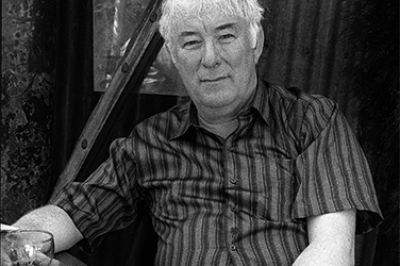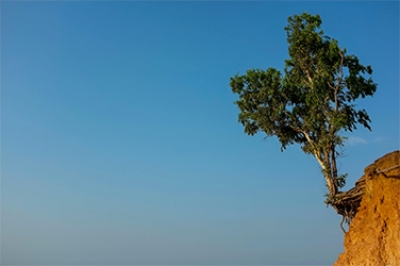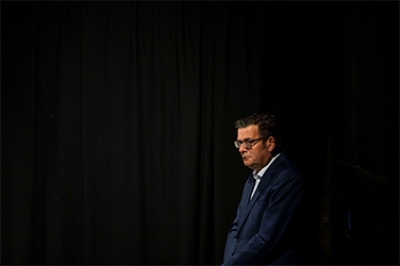Commentary
Who has not heard of “Yabba”, Sydney’s greatest barracker?’, asked the Listener In in February 1937. The Listener In was not the only radio magazine intrigued by a new Australian cricketing identity. Two identities, in fact: Myra Dempsey, who was covering the 1936–37 Ashes series for 3BO Bendigo; and Dempsey’s discovery, ‘Gabba’, a female counterpart to ‘Yabba’. A fixture at the Sydney Cricket Ground for a generation, ‘Yabba’ (Stephen Gascoigne) scored an entry in the Australian Dictionary of Biography and remains a fixture in Australian cricket histories. But Dempsey, a minor celebrity in her day as the first female cricket broadcaster in Australia (and probably the world), remains unknown to broadcasting and cricket historians alike.
... (read more)Algeria, June 1835. General Camille Alphonse Trézel’s expedition to pacify the western tribes had failed. Under the leadership of Emir Abdel Kader, Commander of the Faithful, the Algerians had bloodied the French invaders badly. Outnumbered and compelled to withdraw to the port of Arzew to resupply, Trézel’s column fought desperate rearguard actions for three days and nights. On the fourth day, the Algerian cavalrymen outflanked the exhausted French and were waiting in ambush on the edges of the Macta marshes.
... (read more)I’m unrepresented but still resented. By the regular writers of the pulp I contribute to to keep me and mine from the pawnbrokers; by the witless screenwriters’ minders who know how to quote Lawson, but only in jest; by the rank & file plodders who hate the public, and most of all loathed by academics who have a sort of vision of blue collar, but mix it up w ...
It is pleasing to see the following publishing advice in the report: ‘a book should contain a poet’s best work. It is better to have a good, small collection than a bigger one with weak pieces that are there because of theme or because the poet liked them too much’ (or, maybe, because someone once admired them). First-timers tend to be more careful about this than some poets who have made a name. I know that major poets, in tune with their audience’s level of acceptance, will sometimes rightly present lesser and better work together, to show the spectrum. That aside, there is a myth among poets that a short book doesn’t look good, as if bulk is the proof of something. Yet the buyers of poetry are sensitive to padding – a good book, whether lengthy or not, is as long as there are strong poems for it. Has it been forgotten that such a landmark book as Judith Wright’s The Moving Image (1946) comprised just thirty-one pages of poems?
... (read more)Think of Nobel Laureate Seamus Heaney and you mightn’t automatically think of Australia. What the name invokes for most readers, I would hazard, are the vivid landscapes of Ireland (‘The cold smell of potato mould, the squelch and slap / of soggy peat’). Heaney (1939–2013) might have been a man of the world, but he was rooted half a world away.
... (read more)Australia’s fraught journey with China continues. The Albanese government now wrestles with the same harsh global and regional realities as its predecessors. The crisis brought about by US House of Representatives Speaker Nancy Pelosi’s visit to Taiwan in early August now appears to have ruptured much of the initial attempts on both the Australian and Chinese sides to at least begin talking to each other again.
... (read more)The federal government’s proposal for a multicultural television network has sparked off once more a row about the nature of the Australian national identity.
The opponents of the network seem to fear that it will cause all kinds of divisions in our community by emphasising the different places and cultures to which we owe our origins. They would like to restore the myth of a single nation, bounded and defended by a single shoreline (plus, of course, Tasmania), giving allegiance to a single flag and monarch and united by a single tongue. The myth is glorious in its simplicity, and marred only by the fact that it corresponds to no historical truth.
... (read more)While the art of the ghost writer has a long and honorable history, the court case concerning the extent of Graham Yallop’s responsibility for the book on the recent test series raises a number of general issues apart from the outcome of this particular dispute. At its best, the practice of ghost writing enables the general public to share the experiences of people who have had interesting lives but do not command the verbal skills necessary to constructing a book. Yet the ghost writer may also be the unacknowledged creator of the characters who figure in his work. Few politicians now will risk either the off-the-cuff remark or even the considered epistle, so that the contest of political leadership can degenerate to a trial of speechwriters’ skills. The most proficient comedians are, of course, creatures of their scriptwriters, but they at least exact nothing from us but our laughs. As our sportsmen and women become media figures there is a danger that the players as well as the game will be taken over by the media barons, with the ghost writer acting as puppet master. Fortunately, cricket, a sport which seems able to elicit passions altogether out of proportions with the leisurely pace of the game, has always had players who are as much at home with words as with bat and ball. One of these, Jack Fingleton, was the subject of a review last month; another, Frank Tyson, is a regular contributor to our pages. Their individuality provides some security that the age of the manufactured human is not yet quite triumphant. It would seem, however, that in a world of instant media heroes, publishers have a responsibility to their readers to tell them whether the words they are reading belong to the ostensible author or to an unseen ghost.
... (read more)In his concession speech on election night, after a perfunctory Acknowledgment of Country and a fulsome acknowledgment of Australia’s defence personnel, past and present; after hymning our ‘functioning’ democracy with reference to Ukraine, and intimating that without him we imperil ourselves; after mentioning the ‘great upheaval’ of recent years but failing to use the words pandemic, floods, lockdown, bushfire, or climate change; and after reassuring us that he still believes in miracles, outgoing Prime Minister Scott Morrison declared that ‘the one thing’ he had ‘always counted on’ was ‘the strength and resilience and character of the Australian people’.
... (read more)It was in the wake of the landslide re-election of Daniel Andrews’s Labor government in November 2018 that the former Coalition prime minister, John Howard, christened Victoria ‘the Massachusetts of Australia’. Coming from Howard, this characterisation of Victoria was not meant as a compliment. Rather, it seemed designed as a consolation message for the local Liberal Party. He was providing them with an alibi for their lengthening record of under-performance in the state. Victoria, Howard seemed to be saying, was simply impervious to the party’s conservative values.
... (read more)


